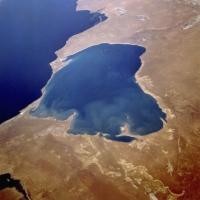The attacks of 9/11 and the ensuing war in Afghanistan did not start the new "Great Game" in Central Asia. Local governments had already grasped the Islamist threat, as well as Russia's neo-imperial longings to dominate the region. Central Asia's great energy stakes, meanwhile, had already determined American resistance to Moscow's policy. However those events undoubtedly imparted a pronounced military aspect to the great power rivalry for political influence and energy access there. Since 2001, the U.S., Russia, Germany, France and India have all acquired local military bases, and their uses or potential missions have grown in importance (although France's presence at Dushanbe airport and Germany's base at Termez in Uzbekistan remain small operations). China, too, has sought bases in Central Asia, expressing interest in a Kyrgyzstan base in 2005, soon after that country's "Tulip Revolution," with the clear intention of forestalling any further upheavals. And when Uzbekistan evicted the U.S. from its base at Karshi Khanabad in July 2005, China sought that base as well, although the move was ultimately blocked by Russia.[1] The U.S. military presence in Central Asia could conceivably grow further, due to the Obama administration's declared emphasis upon winning the war in Afghanistan. The redoubled effort there could be used to justify moving U.S. supply lines from Pakistan, where they are exposed to great risk from terrorists and their supporters, to other locations in Central Asia.[2] Already, Kazakhstan has recently allowed the U.S. to use the aerodrome at Almaty for emergency landings of coalition air forces.[3] And Uzbekistan also granted the U.S. limited use of the base at Termez, which it had allowed Germany to use as a "friendship bridge" from which to deliver non-military supplies to Afghanistan. Now, "Individual Americans attached to the NATO International Staff can use the German air-bridge from Termez to Afghanistan on a case-by-case basis."[4] However, even an expanded U.S. military presence in Central Asia would not change the fact that the U.S. and Franco-German military presence there is confined to prosecuting the war in Afghanistan.
Military Rivalry in Central Asia

